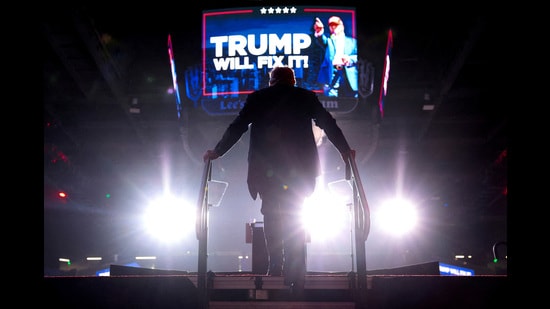Negotiating with a protectionist America presents a unique challenge for global trade. In recent years, the U.S. has adopted increasingly protectionist policies, such as tariffs on imports and a general shift towards favoring domestic industries. This has been fueled by the desire to protect American jobs, reduce trade deficits, and encourage local manufacturing. However, these policies have also disrupted international trade relationships and led to retaliatory measures from trading partners, affecting global supply chains and the global economy.

Source:- bbc news
For countries negotiating with a protectionist America, there are several strategies to consider. First, it is essential to understand the core interests driving U.S. protectionism. Emphasizing the mutual benefits of trade—such as job creation, innovation, and shared economic growth—can be a persuasive argument. Highlighting how foreign investments can benefit American industries, particularly through job creation in sectors like technology, manufacturing, and services, could help ease tensions.
Source:- news 18
Second, negotiations should include a strong focus on trade imbalances, which are a significant concern for protectionists. By offering concrete proposals that address these imbalances—such as increasing American exports or facilitating U.S. investments abroad—countries can demonstrate their commitment to reducing trade deficits.
Additionally, trade agreements can be used to emphasize mutual interests, particularly in areas such as national security, environmental sustainability, and technological collaboration. A strategic approach that showcases the alignment of these interests may help secure favorable terms despite protectionist rhetoric.
Lastly, it is crucial to maintain flexibility in negotiations. Protectionist policies can shift quickly depending on political changes, so negotiators must remain adaptable to evolving trade dynamics. By balancing diplomatic engagement with strategic offers, countries can navigate a protectionist America more effectively, securing favorable agreements while minimizing economic disruption.
Share your views in the comments

